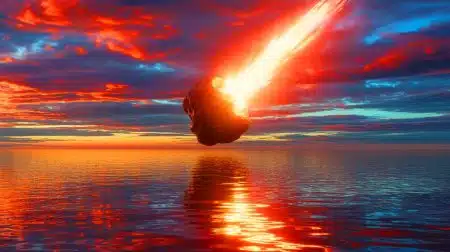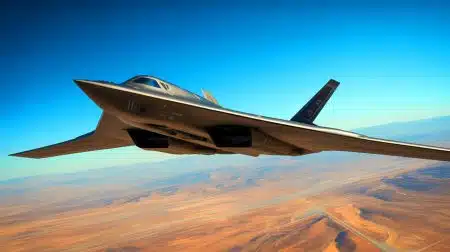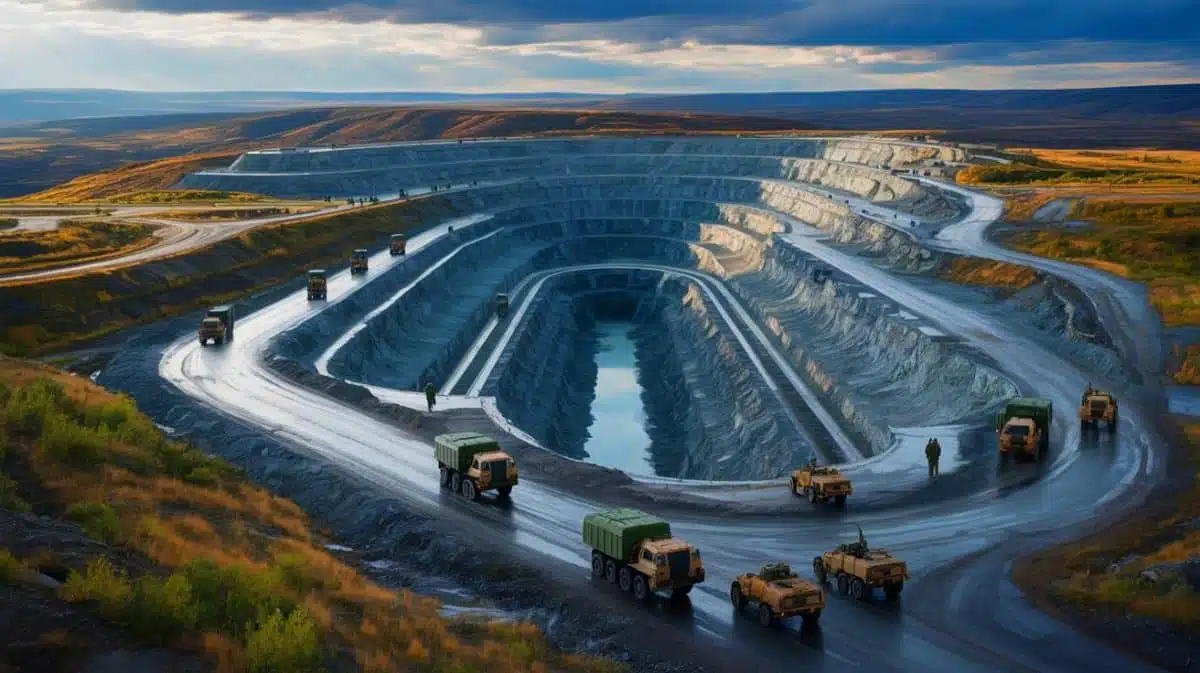| IN A NUTSHELL |
|
The ongoing war in Ukraine has frequently been portrayed through the lenses of besieged cities, shifting front lines, and strategic strikes. However, another less visible front is emerging—one concerning critical resources. Among these, lithium, often referred to as the “white gold” of our era, is drawing significant attention. Recently, Russian forces have seized control of a major lithium deposit near the village of Shevchenko in the Donetsk region of eastern Ukraine. This site, while not widely recognized by the public, harbors one of the largest lithium reserves in Europe, spanning over 100 acres.
The Strategic Importance of Lithium
Lithium is an integral part of modern life, playing a crucial role in the manufacture of batteries for electric vehicles, smartphones, and laptops, as well as energy storage systems essential for the energy transition. In the military sector, it is utilized in advanced alloys for aerospace and weaponry. As global economies seek to decarbonize and move away from fossil fuels, the demand for lithium is surging. In 2022, the price of lithium peaked at over $80,000 per ton, although it has since fallen to around $8,500. Despite this decline, lithium remains strategically important on an industrial scale.
The rising demand underscores lithium’s significance as countries aim to meet renewable energy targets. Its role extends beyond consumer electronics, impacting the broader shift towards sustainable energy solutions. The importance of securing lithium resources is only expected to grow, as nations strive to ensure their energy independence and technological advancement.
Russia’s Capture of Ukrainian Lithium
The capture of the Shevchenko site is crucial not for its immediate tactical military value, but for its long-term economic and geopolitical impact. Prior to the invasion, Ukraine had launched several initiatives to develop its own critical raw material sectors, with support from Western partners. Among these was the lithium deposit, intended to reduce Ukraine’s reliance on imports and position Kyiv as a key regional player.
By taking control of this site, Moscow directly undermines Ukraine’s economic and industrial strategies. More importantly, it gains a significant lever of influence in a world where lithium is becoming as strategically important as oil was in the last century. This acquisition allows Russia to potentially disrupt global supply chains, affecting the energy transitions of its adversaries and bolstering its own industrial autonomy.
A Setback for Western Alliances
This Russian maneuver comes just weeks after a bilateral agreement between the United States and Ukraine was signed to jointly invest in critical resource exploitation. This partnership aimed to fund extraction, processing, and infrastructure projects to strengthen Ukraine’s energy sovereignty. The Shevchenko deposit was among the identified sites, and its capture now jeopardizes Ukraine’s ability to attract foreign capital and ensure the security of mining projects in conflict zones.
The loss of control over the site not only affects Ukraine’s economic prospects but also poses a challenge to Western efforts to secure access to critical minerals. The geopolitical ramifications extend beyond immediate economic impacts, influencing international relations and strategic alliances in the region.
Modern Warfare: Resources Over Territory
With this targeted offensive, Russia is not merely seeking military territorial gains. It is rewriting the rules of modern warfare, where natural resources become a strategic priority. Controlling a lithium mine allows a nation to potentially disrupt global supply chains and slow down the energy transition of its competitors. It also boosts its own industrial self-sufficiency.
NATO and European Union member states have been striving for years to secure access to critical minerals like lithium, cobalt, and rare earth elements. This effort is often in direct competition with China, which currently dominates these markets. By seizing such deposits, Russia positions itself in this silent yet decisive battle for the resources of the future.
The unfolding events in Ukraine highlight the evolving nature of global conflicts, where resource acquisition is becoming increasingly central. As nations continue to vie for control over critical minerals, how will this shape the geopolitical landscape in the years to come?
Did you like it? 4.7/5 (21)








Est-ce que la prise de cette mine va vraiment affecter la transition énergétique mondiale ou est-ce exagéré ? 🤔
Merci pour cet article si informatif. C’est incroyable de voir comment les ressources naturelles deviennent des enjeux stratégiques majeurs.
Je me demande quelles seront les prochaines étapes pour l’Ukraine après cette perte. 😟
La Russie semble jouer une partie d’échecs géopolitique avec ce mouvement.
Est-ce que cela pourrait entraîner une augmentation des prix des véhicules électriques ?
La comparaison du lithium à l’or blanc est-elle justifiée ou un peu trop dramatique ?
J’ai l’impression que ce n’est que le début d’une longue série de conflits pour les ressources. 😓